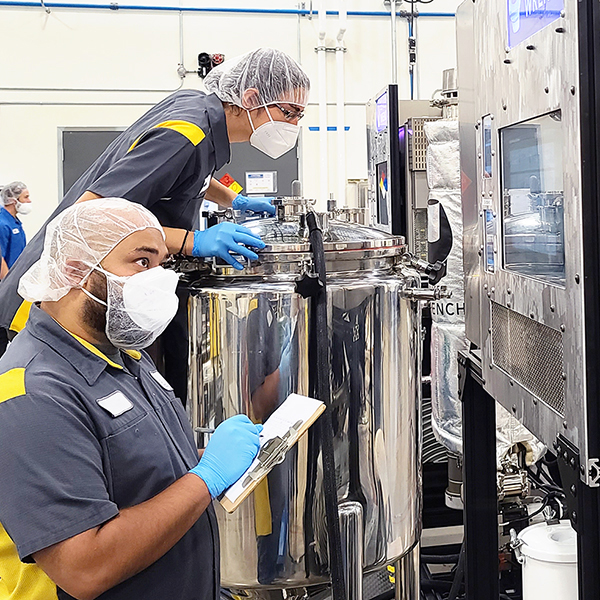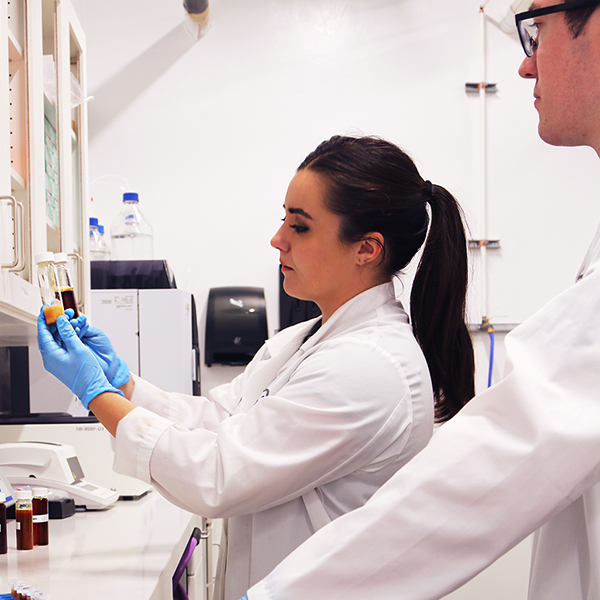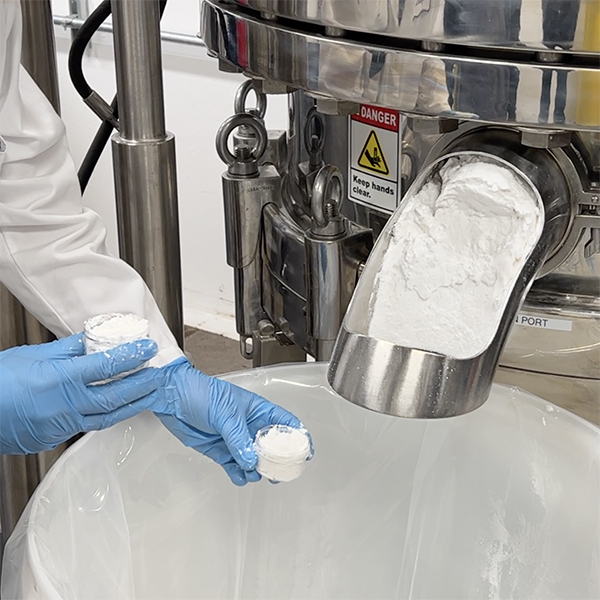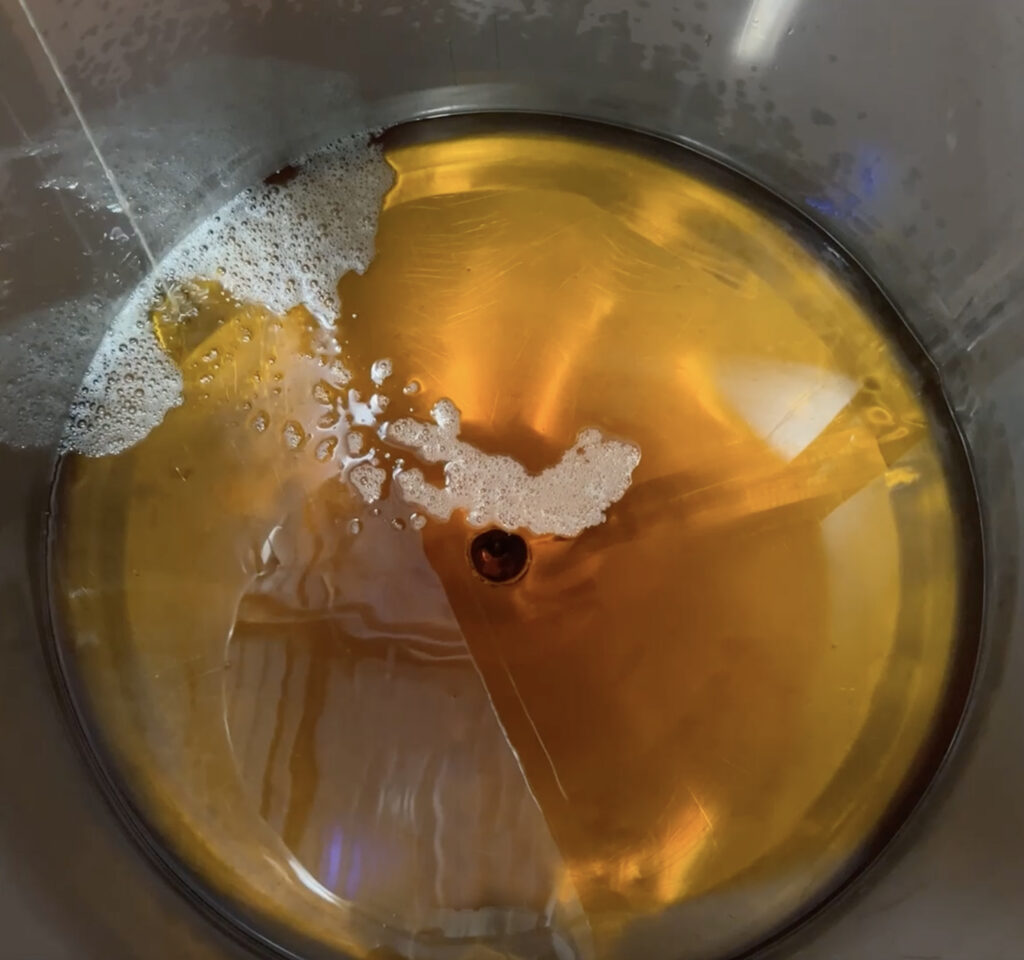COMMON QUESTIONS AND ANSWERS ASKED OF HEMP PROCESSORS
If you can’t find the answer to your question in our FAQs, please contact us so we can help you with the information you need.
Manufacturing Capabilities, Certifications and Regulation Oversight
What are the processes used for making CBD, CBG and CBN isolates and distillates?
- After extracting the most valued cannabinoids from industrial hemp, further processing is accomplished using 12” wiped-film, dual-stage distillation systems to remove undesirable elements, including THC, to produce highly concentrated CBD and CBG oils. For some products, further refinement utilizes industrial-scale crystallization and liquid chromatography equipment to produce CBG and CBD isolates and other specialized distillates.
Which authority are you regulated by?
- We are regulated by the FDA and the Utah Department of Agriculture and Food.
What certifications does Red Mesa Science & Refining Hold?
- We received and have maintained our comprehensive end-to-end ISO 9001:2015 certification. Additionally, as a hemp processor in Utah, we must adhere to cGMP requirements for dietary supplements and human food. (read more)

Quality Assurance, Testing and Lab Qualifications
What quality management steps have you implemented?
- We wrote and implemented our Quality Management System (QMS) to guide us in daily operations from the beginning. Our QMS is ISO 9001:2015 certified and cGMP-adherent for both dietary supplements and human food. (read more)
- We visually inspect and document each stage throughout refinement to provide end-to-end traceability.
- With the help of our in-house analytical laboratory, we can make data-driven decisions in product development to ensure consistency in manufacturing operations and process optimization.
How do I know that the product I receive is below the 0.3% legal limit for THC?
- Beginning at the farm, testing is mandated to ensure our biomass input will meet the USDA’s legal definition of industrial hemp (containing less than 0.3% THC).
- As final confirmation, once the hemp is refined into cannabinoid raw materials ready for sale, our ISO 17025-accredited third-party lab verifies that every lot meets the threshold as outlined by the 2018 Farm Bill and Utah state requirements prior to shipping material to any customer.
Is the third-party lab you use ISO 17025 accredited?
- Yes, the third-party lab has been inspected and has demonstrated operational competency and the ability to generate valid testing results to earn the ISO 17025 accreditation. This level of accreditation is vital for Red Mesa to extend confidence in the quality of our products to our customers. (read more)
Are you FDA registered?
Red Mesa Science & Refining is registered as a food facility with the FDA and subject to random inspections. (read more)

Final Confirmation of Authenticity CoAs and Order Fulfillment
What tests are performed on final product (Cannabinoid raw materials) by independent third-party lab, and can I review the CoAs prior to purchase?
- We require our ISO 17025-accredited third-party lab to test to the specifications listed on R68-37 for pesticides, residual solvents, heavy metals, foreign material, mycotoxins and microbiological contaminants. Third-party lab CoAs are available upon request. (read more)
What is the average turnaround time for orders?
- Turnaround time averages 2 – 4 business days. This length of time depends on how quickly the Sales Agreement is signed by the customer and how long it takes for payment to be received.
How can I set up an account?
- Please use the contact form to indicate interest, email us or call us and we will be happy to assist you.

General Questions
What is industrial hemp-derived CBD?
- According to the 2018 Farm Bill, Cannabis Sativa L. plants with less the 0.3% THC are considered industrial hemp and can be cultivated legally across most states.
What is the difference between Hemp CBD, Cannabis CBD and Synthetic CBD?
- Hemp-derived CBD is derived from hemp plants, which is a varietal of the Cannabis Sativa L. plant with less than 0.3% THC and is federally legal.
- Marijaunna-derived CBD derived from marijuana plants, which is also a varietal of the Cannabis Sativa L. plant with more than 0.3% THC, and is federally illegal.
- Synthetic CBD is produced via chemical reaction processes, which may use natural or synthetically derived precursors that result in the ultimate production of CBD. When purified properly, it is typically chemically the same as extracted CBD. The main difference is the cost associated with the production process and the fact that it is produced in a lab rather than derived solely from a naturally occurring source, i.e., plants.
What is the difference between isolate and distillate (broad spectrum, & full spectrum)?
- Isolate is a refined and purified form of CBD, CBG , CBN and other minors which separates the CBD, CBG and CBN from other cannabinoids, including THC, resulting in a fine white crystalline powder that the highest purity. Being tasteless and odorless, allows for complete control over the end product’s taste and smell.
- Distillate is honey golden in color and results from purified CBD and CBG crude being processed further to retain only the desired cannabinoids while removing waxes, lipids and chlorophyll. CBN Distillate is produced through our proprietary refineement method that allows for more control rather than relying on the decomposition of THC. The resulting Distillate has a faint pleasant aroma and flavor and is highly versatile for infusion into end-product formulations such as vapes, edibles or topicals. Distillate can be classified as Full Spectrum, Broad Spectrum, Crystal Resistant or formulated to exhibit a dominant minor cannabinoid.
- Full Spectrum Distillate is the full plant extract containing the entire spectrum of the original naturally occurring cannabinoids and terpenes within the plant, all with a generous concentration of CBD.
- Broad Spectrum Distillate (BSD) contains predominately CBD and other cannabinoids, terpenes and flavonoids with the THC removed within the regulated threshold, making it ideal for those interested in the entourage effect but without THC. Red Mesa manufactures both T-Free Broad Spectrum Select Distillate and T-Free Broad Spectrum Distillate with only 0.01% THC, well under the 2018 Farm bill federal limits of 0.3% THC content. Another such Broad spectrum distillate product is CBN Distillate which is comprised maily of CBN with additional minors.
- Crystal Resistant Distillate (CRD) is manufactured to resist crystallization. Red Mesa’s Crystal Resistant Distillate is a highly sought CBD raw ingredient due to its anti-crystallization nature and exceptional minor cannabinoid concentration of a minimum of 20% minors guaranteed.


